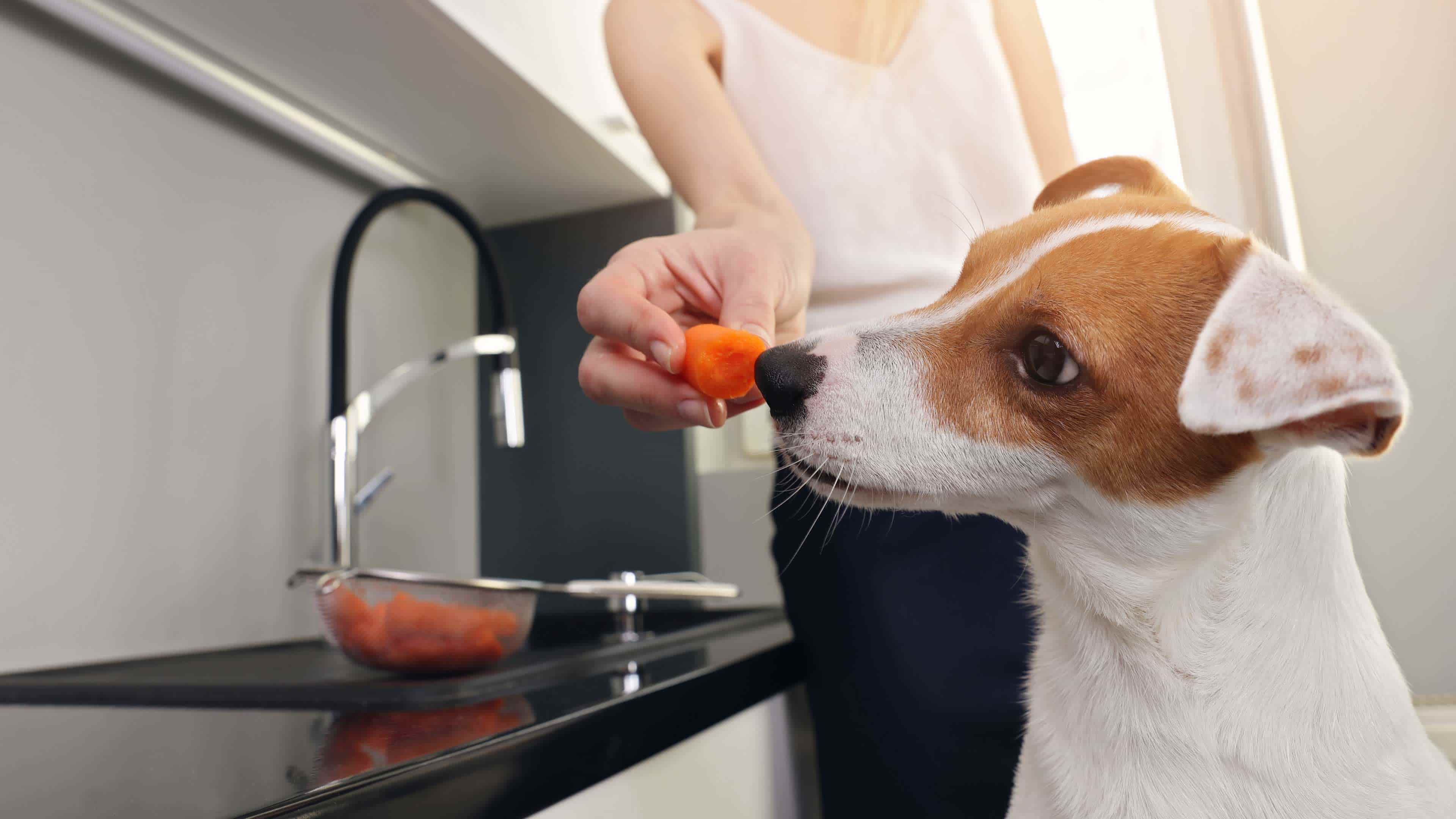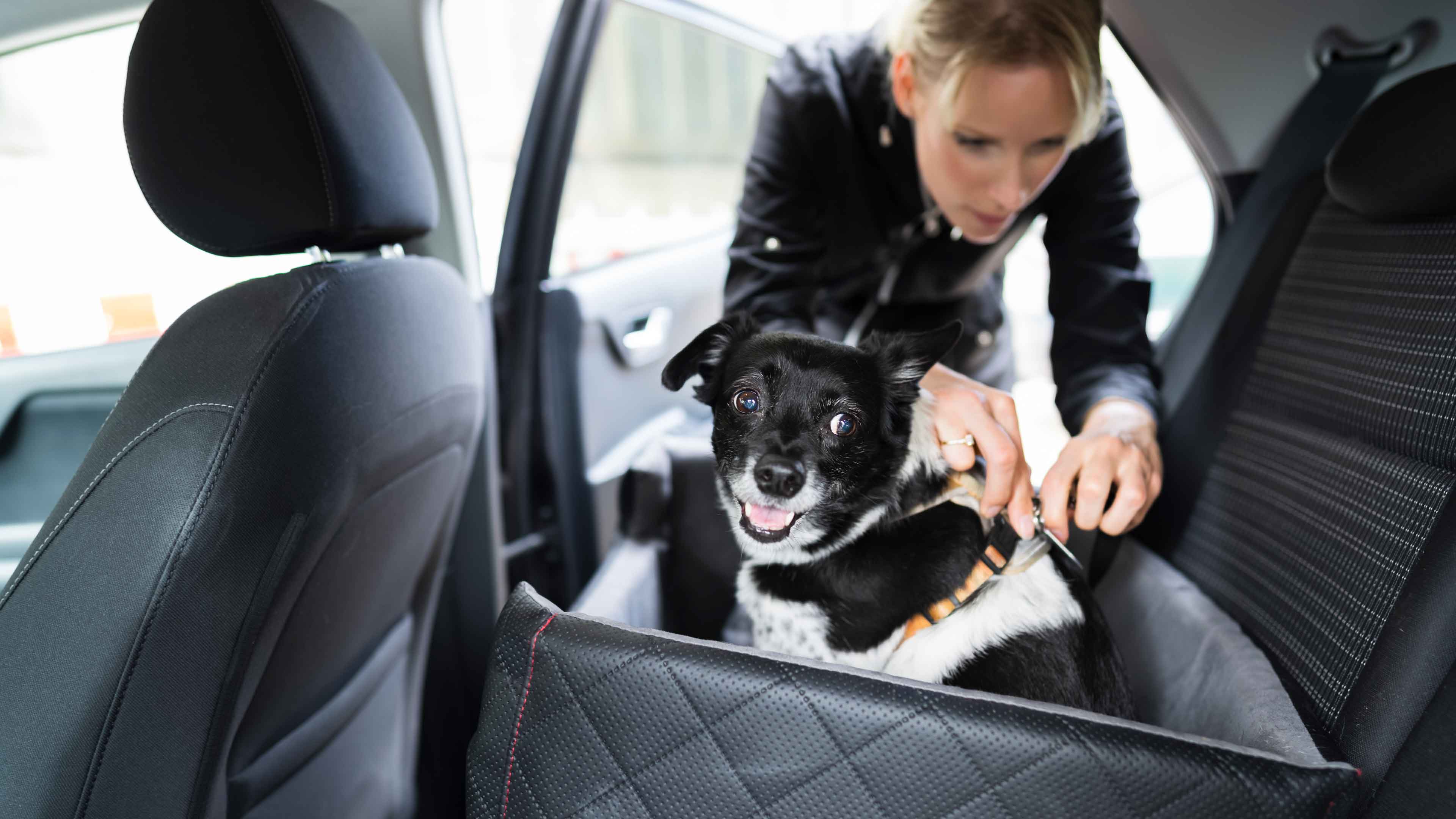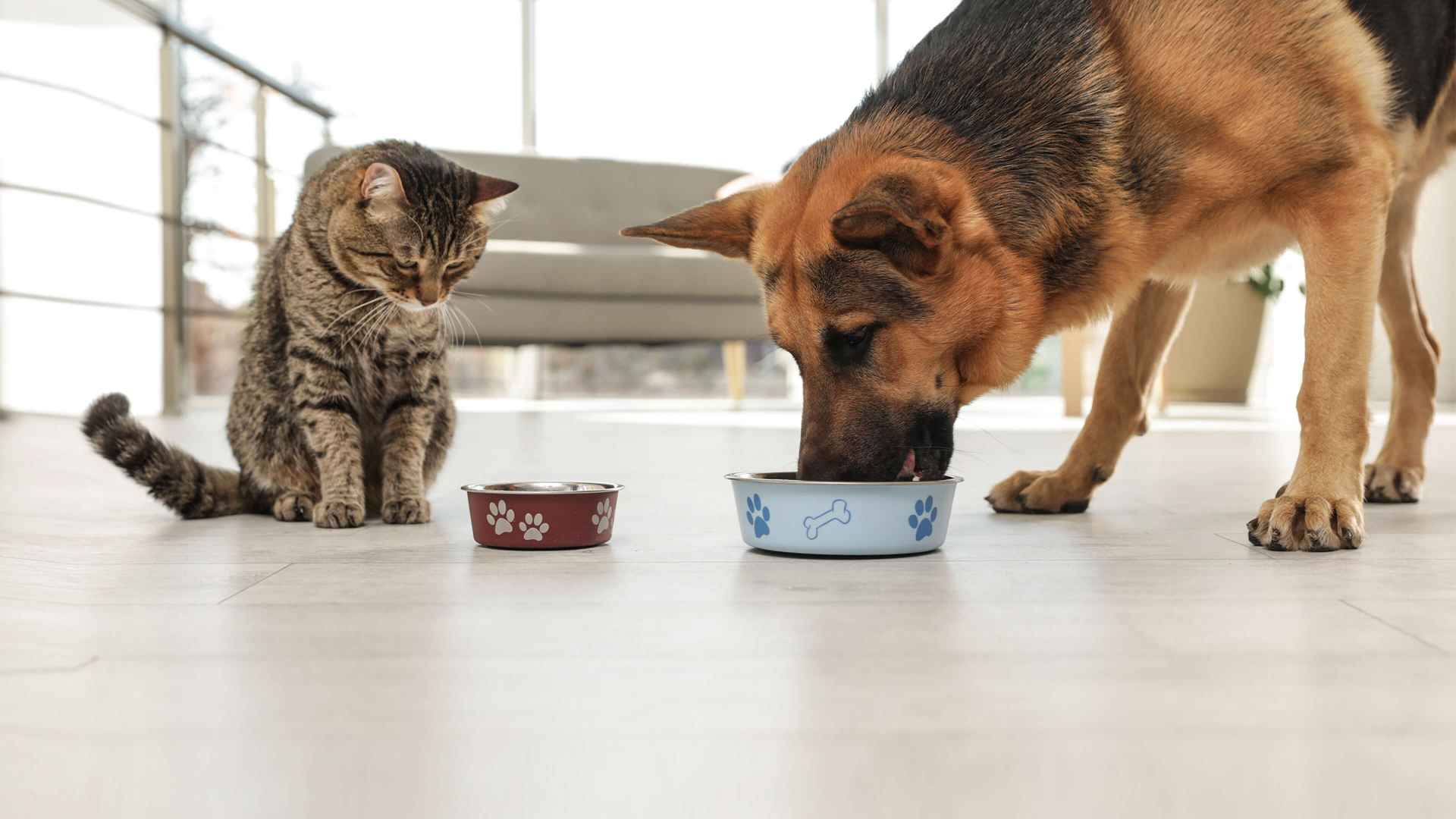4 ways to improve your dog’s diet today
Maybe you have a dog with a particular palate. Or maybe you have a dog who eats anything they can get their paws on (um—don’t let them do this). Either way, your dog’s diet is a huge part of their overall health! We asked Dr. Elizabeth Gammon to share some tips on boosting your furry friend’s food game.
Keep in mind: All dogs are unique and yours may have unique nutritional needs. Talk to your vet before making any major changes to your lovebug’s diet.
1. Watch those portions
Pet obesity is an epidemic. Extra weight can be painful for your dog’s joints and lead to several health issues. If you can’t easily feel your dog’s ribs and they lack a visible waistline, they probably have some weight to lose.
One of the major causes of excess weight is portion control. Dogs typically love food and aren’t particularly discerning when it comes to how much they eat. It’s important to note that food bag recommendations are based on an 8 oz. measuring cup. Plus, don't keep your dog’s bowl full to allow them to "graze." You should measure and start fresh each day.
Talk to your vet if you’re unsure about serving sizes for your furry friend. Oh, and be mindful about how many treats you’re giving out too! We’ve got more dog diet tips over here.
2. Fruits and veggies are a treat!
While there are plenty of quality dog treats on the market, it can be fun to share a fruit or veggie snack with your pup. Make sure to give these in moderation (too much can cause GI issues) and always cut the fruit or veggie into small pieces.
Some of my favorites are:
- Green beans
- Blueberries
- Carrots
- Frozen peas (great as a cool treat in the summer!)
Also, AVOID the following toxic foods for dogs:
- Cherries (all parts)
- Garlic Grapes and raisins
- Onions and chives
- Wild mushrooms
- Tomatoes (all parts)
Note: The above lists are not inclusive of all fruits and vegetables dogs can and can’t eat.
It’s always a good idea to talk to your vet before introducing a new food — especially if your dog has any health concerns.
3. Think of dental health
While nothing replaces the effectiveness of regular teeth brushing and professional dental cleanings, your dog’s dental health can benefit from dental treats. These specially formulated chew treats help reduce bacteria that can lead to stinky breath and dental disease.
4. Omega-3s for the win
Is your dog struggling with a skin or coat issue?
Omega-3 fatty acids may be just the thing they need. Fish oil, a common source of omega-3s, can be found in certain food formulas or used as a supplement alongside your dog’s current diet. It also can be especially powerful incorporated into a senior dog diet, since it has anti-inflammatory properties.
Ask your veterinarian if they think your dog would benefit from omega-3s and what kind they recommend. While they can work wonders on some dogs, they can get too much — so be sure to only give a vet-recommended dosage.
 Mites and mange
Mites and mange Podcast - Not Just Fluff
Podcast - Not Just Fluff











